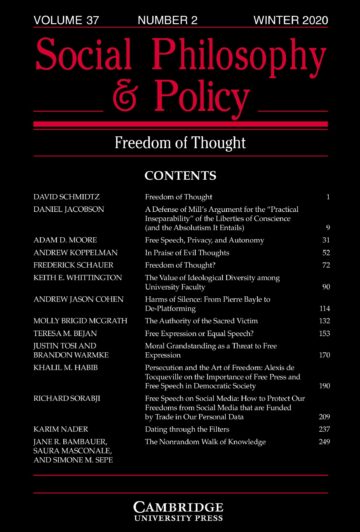
The Authority of the Sacred Victim
Molly Brigid McGrath
Social Philosophy and Policy | 2020
Suffering can make sacred, so it may partly be nature, and not culture alone, that leads us to apprehend a sacred aspect in victims of oppression. Those who recognize this sacredness show piety—a special form of respect—toward members of oppressed groups. The result is a system of social constructions often dismissed as “identity politics.” This essay starts with an analysis of the intentionality of piety and sacredness and how they relate to suffering, sacrifice, sanctions, pollution, and purification. It then argues that the sacralization of oppressed groups is an expression of the perennial human disposition to acknowledge sacredness and to respond piously. The essay then analyzes this sacred status as socially constructed. Based on the sacred-making power of suffering, the sacred status elicits piety, gives its bearers special authority, surrounds them with sanctions, and calls for symbolic sacrificial punishments of the impious. By dissecting sacrificial politics as a system of social constructions, we see that, although the oppressed groups are made sacred, certain people in the oppressor groups—“the Pious”—continue to exercise fundamental power. This essay, by displaying the inner logic of this cultural phenomenon, helps us both to sympathize with and to critique the system and then to pose questions about what good or bad the system might be doing.